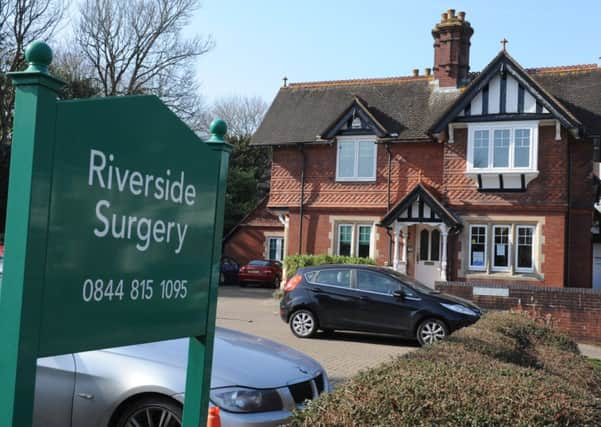Horsham surgery under scrutiny after patient dies from overdose


Lee Hollman, of South Holmes Road, Horsham, died aged 37 after an overdose at his home on February 28, 2013.
At an inquest at Horsham Magistrates’ Court on Wednesday March 12, assistant coroner Karen Henderson recorded that Mr Hollman had taken his own life.
Advertisement
Hide AdAdvertisement
Hide AdBut during the hearing Riverside Surgery fell under intense scrutiny from the coroner when it emerged that a human error had resulted in Mr Hollman receiving excess medication after GP Matthew Davies made a ‘regrettable’ mistake on the patient’s prescription.
On February 4 2013 Mr Hollman met with psychiatrist Dr Roger Singh.
He told the court Mr Hollman had been hearing voices and was fearing for his own safety.
A letter was sent from Dr Singh to Riverside Surgery instructing that Mr Hollman’s Trazodone - antidepressant - medication be stopped, said the coroner.
Advertisement
Hide AdAdvertisement
Hide AdHowever the surgery did not make appropriate checks with the mental health service or attempt to contact Mr or Mrs Hollman and as a result the medication was re-prescribed.
On top of this, an additional dose of Quetiapine - an anti-psychotic drug - was signed-off.
Dr Davies said his workload had increased creating stress at the time.
He explained: “That was an error on my part and one I am very regrettable of.
Advertisement
Hide AdAdvertisement
Hide Ad“That was an oversight on my part. The senior partner was on leave at that particular point. Work load had increased quite a lot.
“I did not undertake an investigation and I should have looked at the records.”
He continued: “It was a very difficult time for us at the surgery because we were trying to carry on looking after our patients under difficult workforce conditions. I think because of that and the stress of that process things were not done as I would have liked them to be done.”
He said a lack of communication with the mental health service ‘has led to the medication being prescribed in a way that we have not liked for it to be prescribed and obviously we’re deeply sorry for that’.
Advertisement
Hide AdAdvertisement
Hide AdThe assistant coroner reacted with surprise when Dr Davies revealed it was normal practise for him to sign off around 100 prescriptions in about 15 to 20 minutes, which he admitted was an ‘extraordinary amount of time’.
The same quantity of sign-offs is expected from doctors who are relatively new to the field, it emerged.
Referring to Dr Louise Tourle, who took to the witness box before her colleague Dr Davies, coroner Karen Henderson said: “Here you have a person who is a duty doctor, who has to see her own patients, who has to do all the other day-to-day duties and at the same time has to sign 100 prescriptions a day. Is that reasonable practise?”
To which Dr Davies replied: “It’s something that I have been used to for some time.”
Advertisement
Hide AdAdvertisement
Hide AdHe said Mr Hollman’s death sparked an internal investigation into the prescription process at Riverside Surgery and stressed procedures have since changed.
The GP explained: “We have done a significant analysis of this and of course what we have tried to put in place are systems where human error like that can be limited and reduced significantly.”
Upgraded computer systems means more red tape has been put in place and further steps must be taken by GPs when dealing with prescriptions.
He added: “Our situation at the surgery has changed.
“We are trying to make sure that we are as safe as we possibly can be in looking after our patients. And where workload has increased we have put processes in place to manage that.
Advertisement
Hide AdAdvertisement
Hide Ad“I’m hoping I can assure people that we have significantly learnt from these errors that have taken place and we’re trying to make sure that these do not happen again.”
In her conclusion, the assistant coroner said she had difficulty in weighing up the fact that Mr Hollman had a mental illness against the additional medication he had been prescribed.
A post-mortem found that the cause of his death was toxicity brought on by the two drugs.
Summing up, the assistant coroner explained Mr Hollman had made an attempt to end his life before, and notes to his family had been left on the successful occasion last year.
Advertisement
Hide AdAdvertisement
Hide AdShe said: “Having thought very carefully about it I can’t within my powers in the coroner’s court link these. It’s not sufficiently causative.
“I conclude that Mr Hollman at the time wished to take his life.”
She stated her intention to write a prevention of further deaths report in relation to the prescription process at Riverside Surgery.